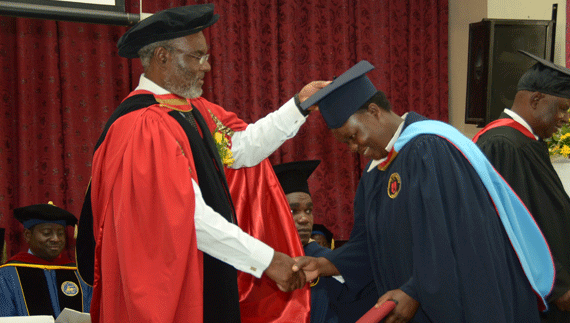
FOUR HUNDRED and forty eight students graduated at Solusi University yesterday after excelling in different fields of study.
JUNIOR MOYO OWN CORRESPONDENT
Addressing the graduands and guests at the graduation ceremony at the Seventh-Day Adventist-run university about 30km south-west of Bulawayo, Higher and Tertiary Education, Science and Technology Development minister Olivia Muchena applauded the academic performance of the graduates saying it would contribute to the country’s socioeconomic development.
“The transformative aspect is significant to ZimAsset. We cannot achieve sustainable socioeconomic transformation without individual and communities that have been transformed through education and learning in particular academic excellence,” Muchena said.
She said the redemptive aspect of the Solusi University curricula provided moral, ethical and spiritual foundation to life which is the bedrock of character formation.
Muchena said because of Solusi’s academic excellence over the years, the Zimbabwe Council of Higher Education had approved the upgrading of the university’s Bachelor of Business Administration (Management) degree to honours.
Muchena said Solusi focused on business management which was linked to industry and promised to help the university strengthen entrepreneurship for the benefit of the students.
She encouraged the university to produce more science teachers so that students could apply the knowledge to available resources for development.
- Chamisa under fire over US$120K donation
- Mavhunga puts DeMbare into Chibuku quarterfinals
- Pension funds bet on Cabora Bassa oilfields
- Councils defy govt fire tender directive
Keep Reading
“I encourage you to produce more science educators for Zimbabwe’s science and technology and innovative-led development.
“This means prioritising programmes in science, technology, engineering and mathematics, among other things.
“Zimbabwe desperately needs science teachers at all levels of our educational system,” she said.
Muchena encouraged students to research for value addition, beneficiation and the exploitation of natural resources to solve problems affecting communities.
“Collaborative research in dry land agriculture or value addition in small grain such as sorghum will go a long way to contribute to ZimAsset, food security and the nutrition objective,” she added.










